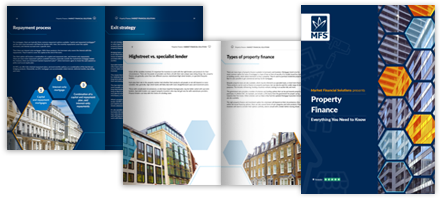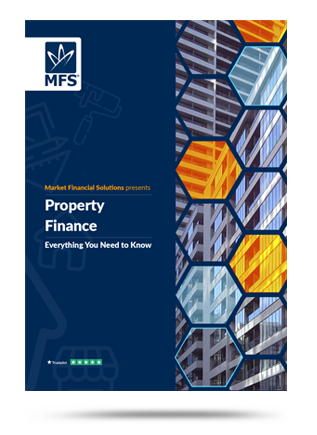Disclaimer
Market Financial Solutions are a bridging loan and buy-to-let mortgage provider, not financial advisors. Therefore, Investors are encouraged to seek professional advice. The information in this content is correct at time of writing.

As the new tax year commences on April 6, new obligations will shape property portfolios for months to come. We’ll outline the key points investors, landlords, and brokers need to know about the 2025/26 tax year, as well as how Market Financial Solutions can assist them for the months ahead.
It needs to be remembered though, that tax is a complicated area. As nice as it would be to have a singular “UK property tax”, it simply doesn’t exist. What investors owe to HMRC will be dependent on their circumstances, applicable perks or tax allowances, and specific investments. As such, to get a complete picture, investors should seek the services of accountants, and/or other tax experts.
Tax Considerations
1. Stamp Duty
For the 2025/2026 tax year, the following rates are applicable for Stamp Duty[1]:
| Property Price | Stamp Duty Rate |
| £0 – £125,000 | 0% |
| £125,001 – £250,000 | 2% |
| £250,001 – £925,000 | 5% |
| £925,001 – £1.5m | 10% |
| Over £1.5m | 12% |
Rachel Reeves, in her 2024 Autumn Budget, increased the SDLT surcharge on second homes and residential investment property from 3% to 5%, which came into effect on 31st October, 2024[2].
Stamp duty for commercial property is 0% up to a value of £150,000. Between £150,001 and £250,000, 2% will be charged, with 5% levied on portions over £250,000.
Let’s have a look at an example. If a landlord buys a home valued at £250,000, they wouldn’t pay any tax on the first £125,000. Instead, they would pay 2% tax on the remaining £125,000. As such, they would pay £2,500 in stamp duty.
Moreover, for landlords or investors who are purchasing another property, holiday home or buy-to-let property (i.e. any property they don’t plan on living in on a permanent basis) for more than £40,000, they pay an additional 2% on each tier of stamp duty in England and Northern Ireland. There are different rates in Wales and Scotland.
As such, the stamp duty rates for buy-to-let landlords in England look like this in the 2025/2026 tax year:
| Property Price | Stamp Duty Rate |
| £0 – £125,000 | 2% |
| £125,001 – £250,000 | 4% |
| £250,001 – £925,000 | 7% |
| £925,001 – £1.5m | 12% |
| Over £1.5m | 14% |
For overseas buyers, there is a 2% surcharge in addition to the normal rates[3].
2. Capital Gains Tax 2025
Capital Gains Tax (CGT), which is charged on the profit earned from the sale of an asset that has increased in value, may be levied on investment properties. The profit, or gain, may be taxed if it’s from the sale of BTL properties, business premises, land, inherited property etc.
The CGT allowance, which is how much can be earned before the tax is levied, is £3,000[4] for individuals in the 2025/2026 tax year. For trustees, it’s £1,500.
Following the Autumn Budget, CGT was increased as follows:
- The main rates of CGT that apply to assets other than residential property and carried interest from 10% and 20% to 18% and 24% respectively, for disposals made on or after 30 October 2024
- The rate of CGT that applies to trustees and personal representatives from 20% to 24% for disposals made on or after 30 October 2024
- the rate of CGT that applies to Business Asset Disposal Relief and Investors’ Relief from 10% to 14% for disposals made on or after 6 April 2025, and from 14% to 18% for disposals made on or after 6 April 2026[5].
Also, Business Asset Disposal Relief has increased from 10% to 14% on a lifetime limit of £1,000,000 for trading businesses and companies[6].

3. Tax Rates
Personal tax thresholds have been frozen until 2028[7]. This translates to a real terms tax increase for many.
The threshold for National Insurance and Inheritance Tax has also been frozen. The inheritance tax threshold, for example, stays at £325,000 with a rate of 40% until 2030[8].
The 2025/26 income tax rates (non-dividend, and non-savings income) are[9]:
- Basic Rate: applied at 20% to taxable income up to £37,700.
- Higher Rate: taxed at 40% on the next slide of income over £37,700.
- Additional Rate: charged at 45% on income above £125,140.
Please note, however, that while we are focusing primarily on property income, income from wages, self-employed profits, pensions, benefits-in-kind, reimbursed expenses, and redundancy payments can all be counted as taxable income.
What’s more, these tax rates primarily concern those who are investing as individuals. But landlords can also invest in buy-to-let property via limited companies, partnerships, and other corporate structures. Should they invest through a company, the profit they’ll make will be liable to corporation tax instead, which in 2025/26 will be 19% on profits between £50,000 and £250,000, and 25% on anything above £250,000.
How investors are taxed will be dependent on their unique circumstances and setup. As such, they will need to work with a tax advisor to fully understand what’s owed.
| Income[10] received from rental properties | UK income tax rates landlords must pay |
| £0 – £12,570 | 0% |
| £12,571 – £50,270 | 20% |
| £50,271 – £125,000 | 40% |
| £125,001 and above | 45% |
4. Mortgage Interest Tax Relief and Tax Credits
Before April 2020, landlords were able to deduct their mortgage expenses from their rental income. With this tax relief they could lower their tax bills by as much as 40%. Since then, Section 24 of the Finance Act 2015 brought few tax changes upon landlords. Buy-to-let landlords can claim a tax-credit that’s based on 20% of their mortgage interest payments[11].
As such, higher or additional rate taxpaying landlords are no longer able to claim mortgage tax relief, as the credit only refunds tax at the 20% basic rate. It could also push some landlords into a higher tax bracket. This is owed to the fact that they’ll need to declare the income that was used to pay their mortgage as well.
Indeed, these mortgage restrictions apply only to individuals, so landlords who purchase their buy-to-let properties through a limited company are exempt, and therefore pay tax on profit rather than income.
5. Dividend Allowance
For the 2025/26 tax year, the dividend allowance is £500. This could affect those who receive dividends from a property investing company. The applicable rates are:
- 8.75% for basic rate taxpayers
- 33.75% for higher rate taxpayers
- 39.35% for additional rate taxpayers[12]
Economic Trends
The 2024/2025 tax year was defined by several macroeconomic trends that contributed to a cost-of-living crisis.
Looking ahead, we face a mixed economic bag. Inflation[13] is proving tricky to overcome, but GDP[14] is on the rise. Borrowing costs are high[15], yet the Bank of England is cautiously cutting rates[16]. House prices are rising, yet landlords are under immense pressures.
Regardless of what’s on the horizon however, specialist lenders will be there for property investors looking to find a way forward.
How to Navigate the New Financial Landscape
There could still be challenges for landlords, investors, and brokers to navigate in 2025/26. To fully manage their UK property tax obligations, they’ll likely need to work with accountants, financial planners, and other experts. While Market Financial Solutions are not tax advisors, we will be there to support property investment plans continuously.
As the economic landscape becomes more complicated, it will be increasingly important for investors to find financial solutions and products that best match their needs. The specialist finance market embraces the kind of flexibility that high-street lenders and big players shy away from. At Market Financial Solutions, we can move quickly and adapt where things go wrong, which is common during times like these.
To help borrowers in unique or complex circumstances, we do not rely on a tick-box criteria for assessing bridging loan and buy-to-let mortgage enquiries. Instead, we take the applicant and the property into consideration. We view their full picture, judging their case on its individual merit.
Moreover, once we agree to terms, we do not change our rates at any point during an application process or bridging term. We present all our charges from day one. This ensures there are no hidden fees or nasty surprises, allowing borrowers to invest with confidence.
To find out more about how Market Financial Solutions could assist landlords, investors, and brokers in the 2024/2025 tax year, please head to our website.
The Complete Guide to
Property Finance
Everything you need to know
- Foundation & different finance types
- Useful tools
- Apply them in real life
- Market insights & more
[1] https://unividual.co.uk/financial-guides/2025-26-tax-planning-guide/
[2] https://www.mfbrokers.co.uk/resources/news-and-insights/labour-s-painful-autumn-statement-your-key-takeaways
[3] https://www.cbreresidential.com/uk-resi/stamp-duty-calculator#:~:text=Stamp%20Duty%20rates%20for%20non,zero%20rates
[4] https://www.goforma.com/calculators/capital-gains-tax-calculator#:~:text=Annual%20Capital%20Gains%20Tax%20Allowance&text=Capital%20Gains%20Tax.-,For%20the%202024%2F25%20and%202025%2F26%20tax%20year%2C,owe%20any%20tax%20on%20them.
[5] https://www.gov.uk/government/publications/changes-to-the-rates-of-capital-gains-tax/capital-gains-tax-rates-of-tax
[6] https://unividual.co.uk/financial-guides/2025-26-tax-planning-guide/
[7] https://www.cipp.org.uk/resources/news/gov-doesnt-extend-the-income-tax-threshold-freeze.html#:~:text=During%20the%20Budget%20it%20was,in%20place%20until%20April%202028.
[8] https://www.ftadviser.com/your-industry/2024/10/30/budget-2024-iht-thresholds-frozen-until-2030/
[9] https://unividual.co.uk/financial-guides/2025-26-tax-planning-guide/
[10] https://fullfact.org/economy/income-tax-threshold-reduced-false-claim/
[11] https://www.moneysupermarket.com/landlord-insurance/buy-to-let-tax-relief/#:~:text=The%20changes%20to%20the%20tax,band%20the%20landlord%20falls%20into.
[12] https://www.agmead.co.uk/news/autumn-budget/article/2024/October/personal-tax#:~:text=Tax%20on%20dividends&text=Dividends%20received%20above%20the%20allowance,39.35%25%20for%20additional%20rate%20taxpayers.
[13] https://www.ons.gov.uk/economy/inflationandpriceindices/bulletins/consumerpriceinflation/january2025
[14] https://www.bbc.co.uk/news/business-13200758
[15] https://www.credit-connect.co.uk/news/consumer-collections/mortgage-arrears-increase-as-borrowing-costs-rise-unexpectedly/
[16] https://www.bbc.co.uk/news/business-57764601





